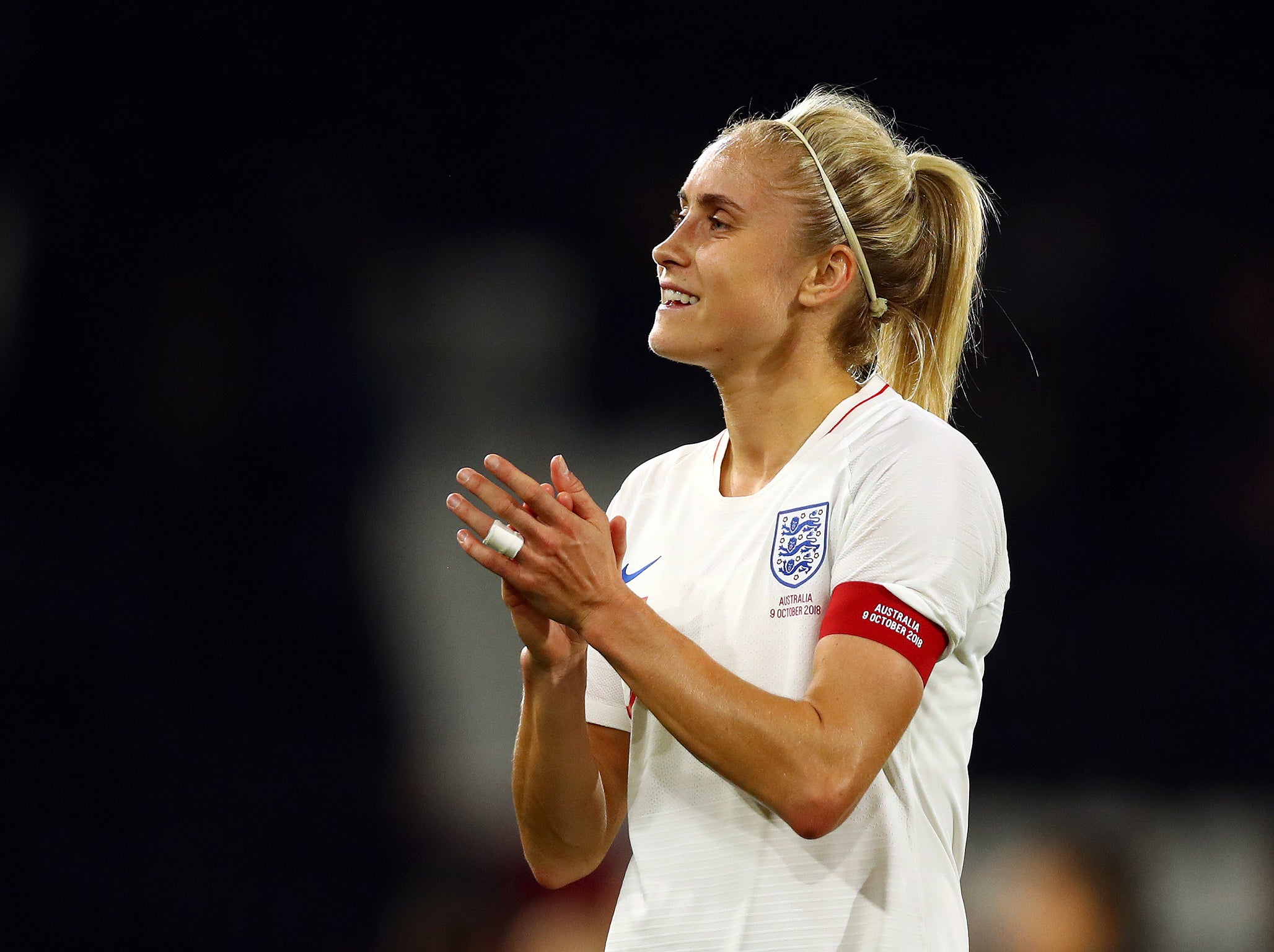The making of Steph Houghton: England’s captain fantastic set to celebrate 100th cap this weekend
This weekend Houghton and her family are sure to reflect on how far she and the sport have come since her first, 11 years ago

A sell-out crowd at Rotherham United’s New York Stadium will acclaim Steph Houghton’s hundredth cap on Sunday. As England’s captain takes the applause, then composes herself to play Sweden, she and her family are sure to reflect on how far she and the sport have come since her first, 11 years ago.
An office block now stands where Houghton’s international career began. Her debut came in one of the last football matches at what was England’s National Hockey Stadium, before it was demolished to make way for Network Rail’s national centre.
Hockey itself had already left the venue, replaced by Wimbledon FC. They had infamously quit south London and were awaiting the construction of Stadium: MK and renaming as MK Dons.
Windswept, with temporary stands at each end and another extending only 25 yards either side of the halfway line, the ground was only used for 12 years and never felt permanent. Houghton, by contrast, looked like being an international fixture long before she came on with 17 minutes left of a 6-0 win over Russia.
Durham-born Houghton made her debut for Sunderland at 14, at centre-forward. England recognition followed in a series of age-groups during which time the only question was where she would finally shine for her country, having also excelled as a midfielder, full-back and centre-back.
However, the path had high hurdles. FA Young Player of the Year in 2007, despite playing for relegated Sunderland, she was called up for the 2007 World Cup. Shortly before flying to China for the finals Houghton, then 19, broke her leg in training.
Two years later, having regained fitness and won one of the FA’s first central contracts – a significant step in the professionalisation of the women’s game - she suffered ruptured cruciate ligaments ahead of the 2009 European Championships. Houghton finally played in a tournament at the 2011 World Cup, but only briefly, as a substitute.
The breakthrough came the following year as, from left-back, she scored three goals in four games for Great Britain in the London Olympics, including the only goal against Brazil in front of 70,584 at Wembley. Houghton was on the map, and so was wider recognition of the women’s game.
Yet even at this point, despite moving to then-dominant Arsenal, via Leeds, and securing the £16,000-a-year FA central contract, Houghton was still semi-professional. Around her football she fitted in a part-time job as a recruitment officer at the University of Hertfordshire.
That changed in 2014 when Manchester City became involved in women’s football. They set about securing the best British players and paying them enough to concentrate solely on football. Houghton, whose commanding presence at centre-half has been a key influence in their subsequent success, is still paid less in a year than her male colleagues in a week, but given the previous generation of players were not paid at all it is significant progress.
There has also been an increase in sponsorship opportunities after Houghton, 30, led England to the semi-finals of both the 2015 World Cup and 2017 European Championships. Victory in next summer’s World Cup would accelerate that earning potential but it has never been about the money for a group of players who did not envisage making a living from the game.
Indeed, City’s main attraction for her and others was the chance to improve through full-time training and better facilities.
The sport’s progress should not be over-stated. There were less than 6,000 to watch Houghton’s debut, barely 2,000 a few days later at Wycombe when she started for the first time. Though Rotherham is sold out that is only 12,000 fans and the combined gate for England’s two home friendlies last month was less than 14,000. Tomorrow’s game, against the Olympic silver medallists is not even televised being available only on the @Lionesses twitter account.
Nevertheless, tomorrow will be a welcome moment of joy for Houghton after the shattering news that her husband, Bolton’s Stephen Darby, has motor neurone disease. Manager Phil Neville has praised the way the couple have faced the diagnosis but while outwardly no one could tell from her poise there will surely be many emotions swirling around Houghton’s head tomorrow.
Prominent among them should be pride.
Subscribe to Independent Premium to bookmark this article
Want to bookmark your favourite articles and stories to read or reference later? Start your Independent Premium subscription today.

Join our commenting forum
Join thought-provoking conversations, follow other Independent readers and see their replies